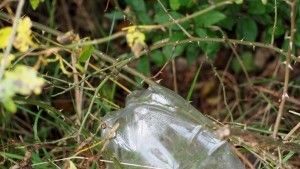Scientists have accidentally developed a plastic-eating enzyme that may be used to combat one of the world’s worst pollution problems.
Researchers from Britain’s University of Portsmouth and the US Department of Energy’s National Renewable Energy Laboratory (NREL) made the discovery while examining the structure of a natural enzyme found in a waste recycling centre a few years ago in Japan.
They say the enzyme, Ideonella sakaiensis 201-F6, is able to “eat” polyethylene terephthalate, PET, which was patented as a plastic in the 1940s and is used in millions of tons of plastic bottles.
Their aim was to study its structure, but they accidentally engineered an enzyme which was even better at breaking down PET plastics.
“We hoped to determine its structure to aid in protein engineering, but we ended up going a step further and accidentally engineered an enzyme with improved performance at breaking down these plastics,” said NREL’s lead researcher Gregg Beckham.
The discovery could result in a recycling solution for millions of tons of plastic bottles made of PET, which currently persists for hundreds of years in the environment, the University of Portsmouth said on its website.
“Serendipity often plays a significant role in fundamental scientific research and our discovery here is no exception,” said Professor John McGeehan, director of the Institute of Biological and Biomedical Sciences in the School of Biological Sciences at Portsmouth.
read more at cnn.com
Ask me anything
Explore related questions





